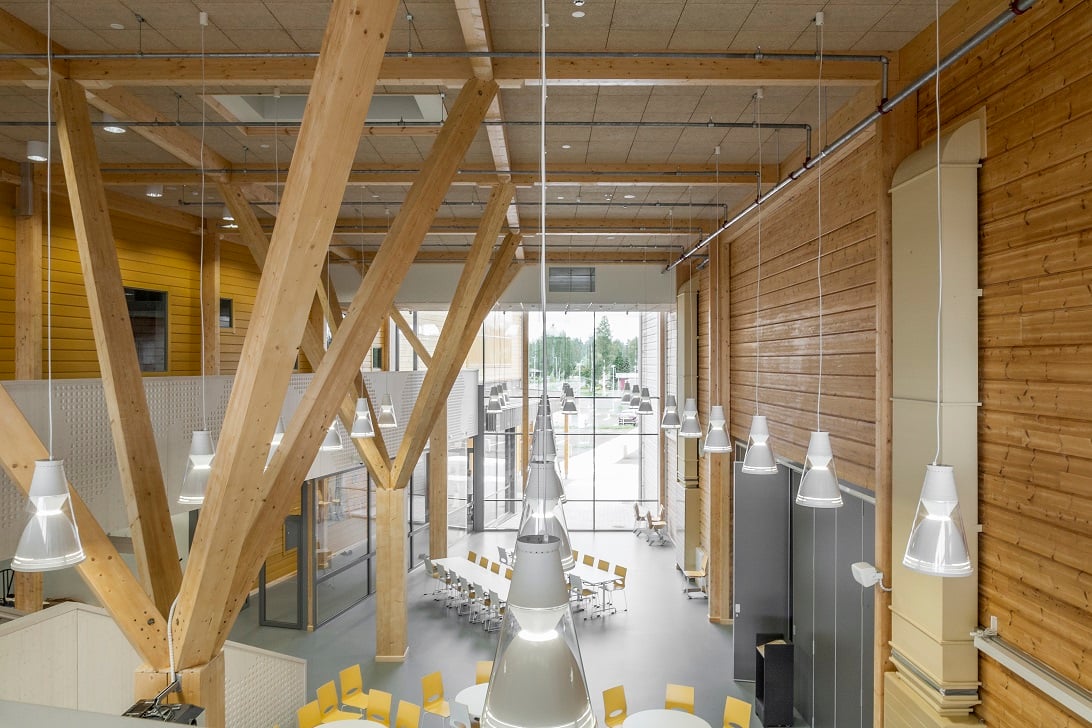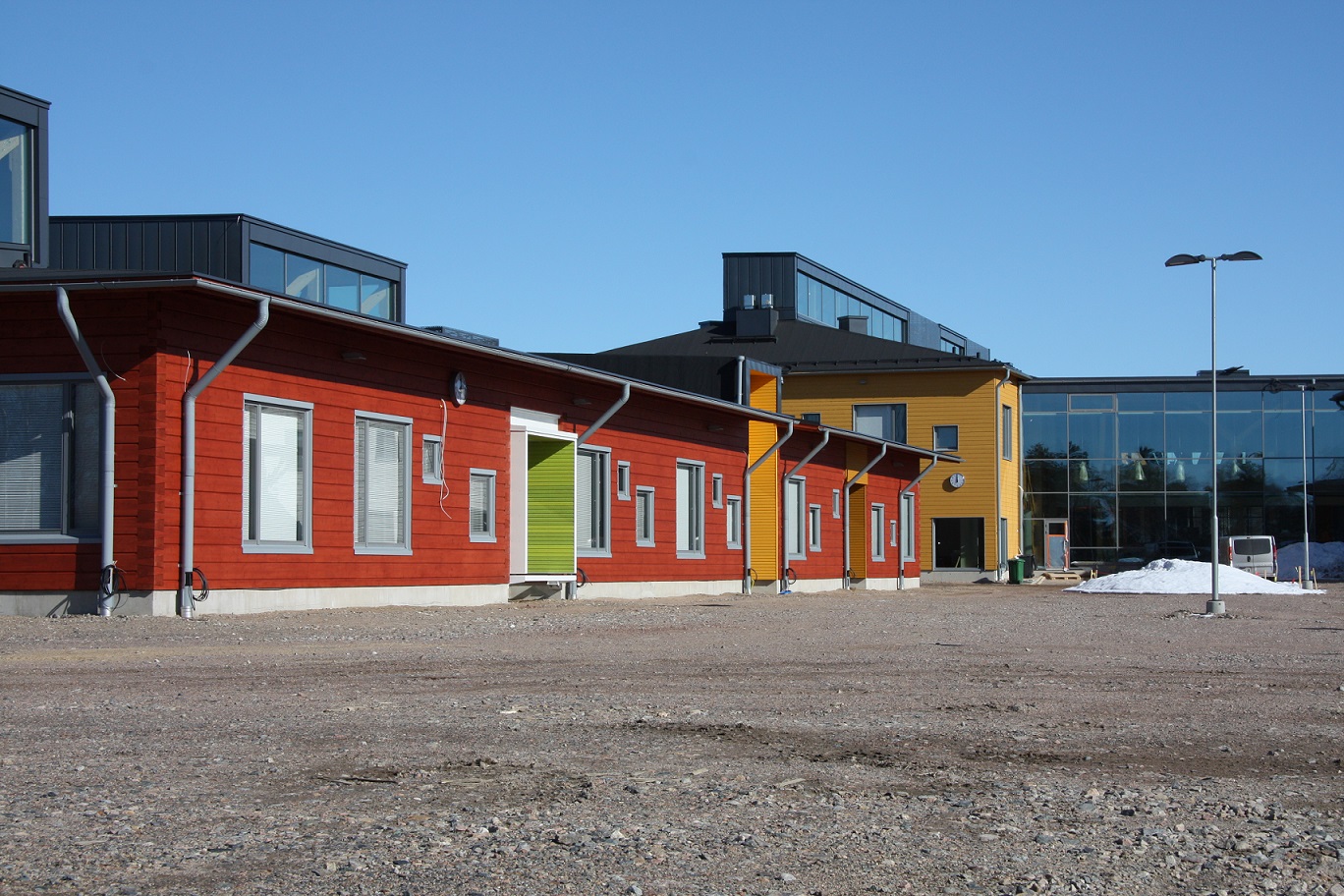
The municipality of Pudasjärvi in Northern Ostrobothnia, Finland is leading the way in modern timber construction. Pudasjärvi’s new wood-structured campus, completed this autumn, is a combination of cosy spaces, safety and modern learning environments. The municipality wanted to build a new school out of timber to avoid the constant renovations required by the old buildings and the health problems caused by poor indoor air quality.
The timber campus in Pudasjärvi is the largest wood-structured school in the world. It consists of four different sections: three are built entirely of wood, but the school kitchen and civil defence shelter are housed in a section made of concrete. In total, some 800 pupils attend the primary school, secondary school and upper secondary school, housed in the new building.
A natural construction material
Wood is a natural and versatile construction material with many beneficial properties. “The excellent indoor air quality is based on the natural ‘breathability’ or vapour permeability of timber walls. Water vapour does not condense on timber walls in the same way as it does on tightly insulated concrete walls, and unhealthy mould cannot grow on dry structures,” says Pekka Lukkaroinen, the architect who designed the timber campus.
Lukkaroinen adds that the acoustic properties of the building are also of high quality. The fire safety of wooden buildings is similar to other buildings, since the same regulations apply to all public buildings. In addition, wood has been proven to have positive effects on wellbeing. “Wood is a natural and soothing material due to its neutral shades and smooth surfaces. Research shows that spending time in wooden buildings lowers our heartbeat and reduces stress.”
The company, Lukkaroinen Architects, received the 2016 Finnish Wood Award for the Pudasjärvi timber campus. The Finnish Wood Award is awarded annually to a building, interior design or structure that represents high quality, Finnish wood architecture or in which wood has been used in a way that advances building technology.
Timber is gaining popularity in public buildings
Project manager Yrsa Cronhjort from the Aalto University Department of Architecture estimates that timber has maintained its position as a popular construction material in holiday cottages and small houses, but its use is also gaining popularity in blocks of flats and public buildings such as schools, office buildings and serviced flats for the elderly.
“The current development of energy efficiency legislation and regulations means that using timber as a construction material will continue to be possible in public buildings.”
Wood is an outstanding material from the viewpoint of environmental impact, because it absorbs a large amount of carbon dioxide. As climate change progresses, rainfall and humidity will increase and these changes should be considered in the construction industry and in the maintenance of buildings.
“In the future, environmental factors will also be taken into consideration in building regulations. This will put wood on an equal footing with other materials, so the outlook for timber construction is positive,” Cronhjort says.
Sawn timber supplied by UPM is widely used for construction in Europe and Japan. The wooden house industry is one of UPM Timber’s largest domestic sales segments.

The timber structures of the campus project in Pudasjärvi have been manufactured by Kontiotuote and the sawn timber was supplied by UPM Timber. The main contractor was Lemminkäinen Oy.
Read more: The Finnish Forest Association visited the campus in March 2016
UPM Timber supplies sawn timber for the construction of ecological log houses
Photos: Raimo Ahonen & Kontiotuote Oy